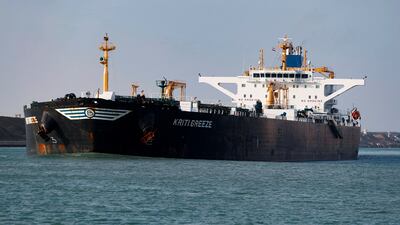Transit fees for oil tankers and several other types of vessel passing through Egypt’s Suez Canal will rise by as much as 15 per cent from mid-January, the waterway’s authority said on Tuesday.
The increase will apply to crude oil tankers, petroleum derivative carriers, liquefied natural gas carriers and liquefied petroleum gas, container ships and passenger ships, the authority said in a statement.
A 5 per cent increase will be levied on dry bulk carriers and roll-on/roll-off vessels.
Ships heading from ports in Northwestern Europe to destinations in the Far East are exempt from the latest increase.
The Suez Canal is one of the world's busiest waterways and the shortest shipping route between Europe and Asia. About 12 per cent of the world's trade moves through the canal.
Its revenue is a main source of foreign currency for Egypt, along with remittances of Egyptian expatriates and tourism.
Revenue from the Suez Canal reached record $9.4 billion during 2022, up 34.7 per cent from the previous year, state news agency Wam reported on Tuesday.
Osama Rabie, chairman of the Suez Canal Authority, said it is estimated to climb $10.3 billion by the end of 2023, according to Wam.
A total of 26,000 ships passed through the canal during the last fiscal year, up 17.6 per cent on an annual basis.
The canal’s authority raised transit fees by 10 per cent last year. In February this year, it again increased transit fees paid by crude oil and petroleum product tankers from 15 per cent to 25 per cent, which came into effect on April 1.
An ambitious expansion plan for the 193-kilometre waterway was announced by the authority in 2021.


